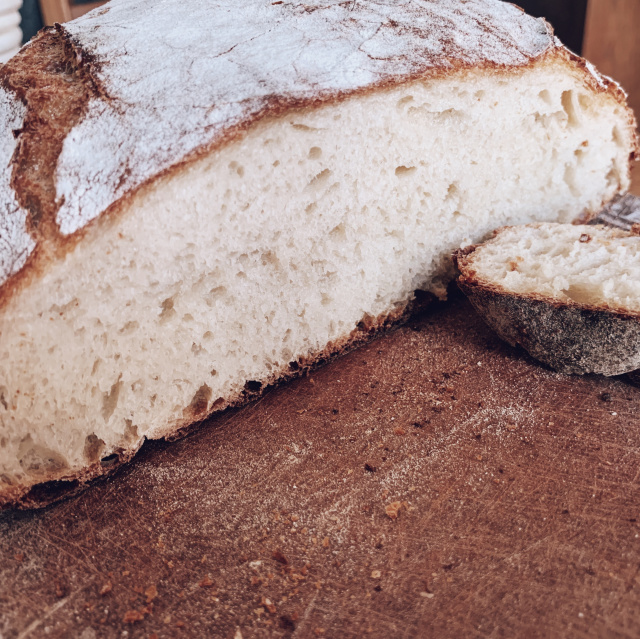Posts from April 2020
Happy birthday, kk! Thanks for the advice, this is a great unordered list of wisdom.
"It now seems less likely than ever that the United States will do what is necessary to reopen the economy without causing a second wave of deadly infections."With no quick fix on the way and lack of political will to build testing infrastructure we’re left with two options: continued quarantine or rising death toll.
"In this case, not only is it humanitarian, it’s about strategic relationships and it’s about making sure the disease isn’t coming back into the US as we participate in global commerce that we benefit immensely from. So I think what you’re seeing in the short term, in terms of how the US is engaging, isn’t where we’ll end up. There are many voices that are going to push us to work with Europe and work with other countries and be part of the innovations that will bring this to an end."Headline is a bit misleading, but it's always interesting to hear where Gates is at with this. I appreciate his optimism.
"They say they’re not surprised, however, that a slide occurred in a week that saw the first highly publicized challenges to such orders by protesters and President Trump, who tweeted his support to “liberate” states from shutdowns."It’s a challenge.
"In its first fully functional 10-day period, they milled a ton of wheat; under normal circumstances, that would've been a year's worth. As a result, it has already been able to deliver 200 three-pound bags of flour to local stores and bakeries."Helpful history.
Home Bread
"With few exceptions, almost all of the SSEs took place indoors, where people tend to pack closer together in social situations, and where ventilation is poorer."That’s it, indoors is cancelled.
"Reinforcing that quarantine is helping to keep others safe, including those particularly vulnerable (such as those who are very young, old, or with pre-existing serious medical conditions), and that health authorities are genuinely grateful to them, can only help to reduce the mental health effect and adherence in those quarantined."Interesting look at the impact of past quarantines and how we might reduce the harm of our current mass quarantine.
“There’s a big difference in how people handle this virus,” says Robert Murphy, a professor of medicine and the director of the Center for Global Communicable Diseases at Northwestern University. “It’s very unusual. None of this variability really fits with any other diseases we’re used to dealing with.”Another reminder that this isn’t like a flu.
"The answer is no. Until further notice—meaning, some significant developments in testing, manufacturing, infrastructure, and government coordination—you can assume the answer to any and all of the questions you think of in the “social distancing loopholes” genre is no."With the nice weather and relatively successful social distancing program here in Oregon this message is getting harder to hear. I've been tempted by the let's just stay six feet apart siren song. But I think we should stay home as much as possible. 2020 says no. Can’t I please just visit one friend? No :(. Staying home saves lives.
"The Corvallis study will be completed over four consecutive weekends and will provide important public health information that has been lacking throughout the pandemic. A limited pilot phase of the study in several Corvallis neighborhoods will be conducted Sunday, April 19, to test procedures the study will use in gathering and testing samples."OSU is doing some randomized testing study to see how much covid-19 has spread in Corvallis.
Plum Blooms
“This is a movie-like save, it doesn’t happen in the real world often,” Padgett said. “I was just a fortunate recipient of people who said, ‘We are not done. We are going to go into an experimental realm to try and save your life.’"This is an amazing story about a frontline doctor who is also a cytokine storm survivor.
"This effort will be guided by data. We need to see a decline in the rate of spread of the virus before large-scale reopening, and we will be working in coordination to identify the best metrics to guide this."Maybe we could get all states to band together somehow.
"Until there’s a vaccine, the US either needs economically ruinous levels of social distancing, a digital surveillance state of shocking size and scope, or a mass testing apparatus of even more shocking size and intrusiveness."This is what’s keeping me up worrying at night. And stories like: There Is No Plan for the End of the Coronavirus Crisis:
"But while it may not be possible to pinpoint a date, or a month, at which point we can expect to transition out of bunker living, no one seems to have any sense of how we’ll arrive at that determination, how much we will have wanted to contain the outbreak, at what levels, before moving forward, and what steps moving forward would then entail."No plan.
A number of leading public health authorities, universities, and NGOs around the world have been doing important work to develop opt-in contact tracing technology. To further this cause, Apple and Google will be launching a comprehensive solution that includes application programming interfaces (APIs) and operating system-level technology to assist in enabling contact tracing.I'm extremely concerned about privacy related to these companies and I also think this is a great development. We're going to need to trade some privacy for safety to get society going again. Kottke had a neat comic explainer about how contact tracing works: How Privacy-Friendly Contact Tracing Can Help Stop the Spread of Covid-19.
"Your employee didn’t choose this; it’s not like she decided to work with a toddler lurking around in order to save on child care expenses. We’re in a pandemic and a public health crisis. She, like millions of parents across the country, is an impossible situation and is trying to make it work as best as she can."If you're lucky enough to be able to work from home you're not experiencing standard work from home right now. It feels more like crisis management at home plus work.
Trees
In a video posted to Twitter, Cook says Apple has sourced more than 20 million masks through its global supply chain and is working with governments to donate them where they’re needed.Nice work! Take a look at the assembly instructions for a sense of what the face shields are like.
“New York needs more ventilators, and we are answering their call for help,” Brown wrote. “We’ll be sending 140 ventilators to help NY because Oregon is in a better position right now. We must do all that we can to help those on the front lines of this response.”Very happy to see this! I could read stories like this or this or this all day.
"If we lift the restrictions and risk rising cases again without being prepared in our hospitals, we have the potential to expose our doctors and nurses to the same thing that they’re going through now—which is basically a crisis. In many places, they’re not well protected or they’re running out of equipment. So we need to make sure that the supply-chain problems have been sorted out before we begin to experiment with lifting social distancing."This is a Johns Hopkins health security expert on how we get to less physical distancing. And on wearing masks:
"This is an unprecedented epidemic, and we should be leaning toward doing things even if we’re unsure of their full benefit. If the downside is perceived to be low, and there’s demand for an additional preventative benefit, I think we should do it."We have a ways to go.
Improvised filters with household materials. Short answer: pillowcases and t-shirts work best.
"By the end of the month, wearing a face mask should be like wearing a shirt—a routine social behavior that is expected of everyone and gets you weird looks if you don't do it."Yes, time for masks! I just made my first mask today and I can barely sew.
"People actually do need to buy significantly more toilet paper during the pandemic — not because they’re making more trips to the bathroom, but because they’re making more of them at home."This is more than I ever thought I’d need to know about toilet paper supply chain logistics. This is useful for thinking about other shortages we have now too.
"H-2A workers have been deemed essential by the government, and should be allowed to work in the United States. These workers don't seem to be avoiding coming to the United States for fear of catching Covid-19 — the economic incentive is just too large to give up, Carr said. But workers may eventually decide it's too risky to enter the United States."Interesting look at how agriculture could be disrupted.
Tests to detect antibodies will also be able to identify those who have had infections in the past and may now be immune. In the short term, this will be important because it will permit the authorities to identify who may return to their jobs without risk of infecting others.This is good news.




See also: Radiohead, Metallica.